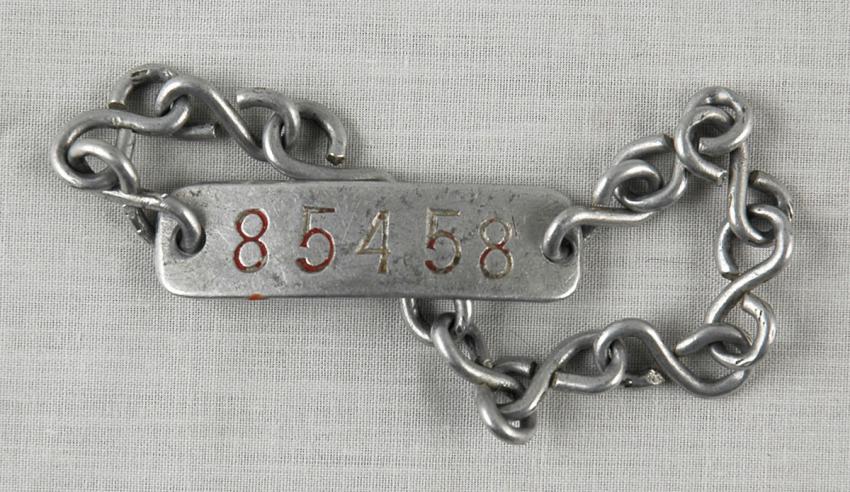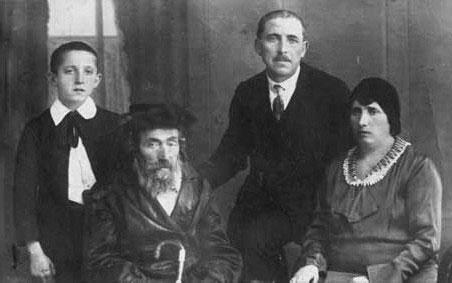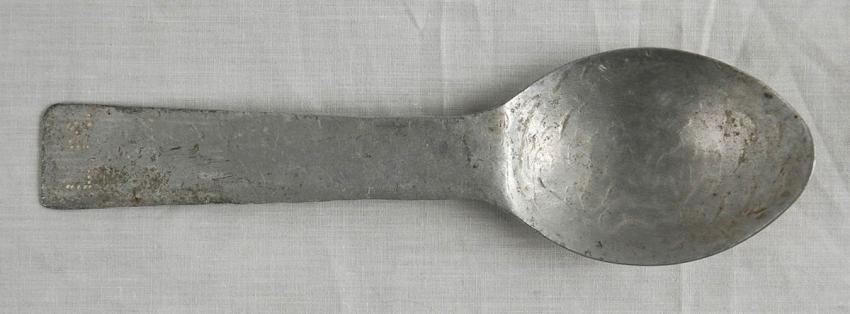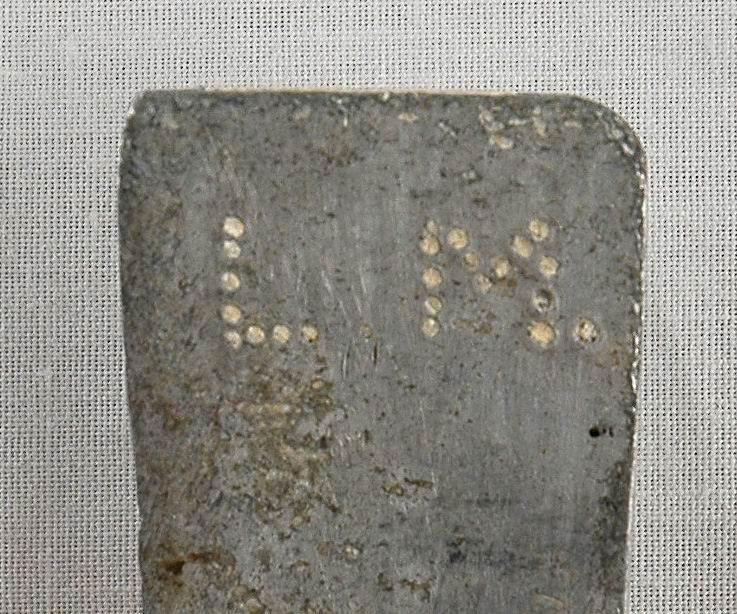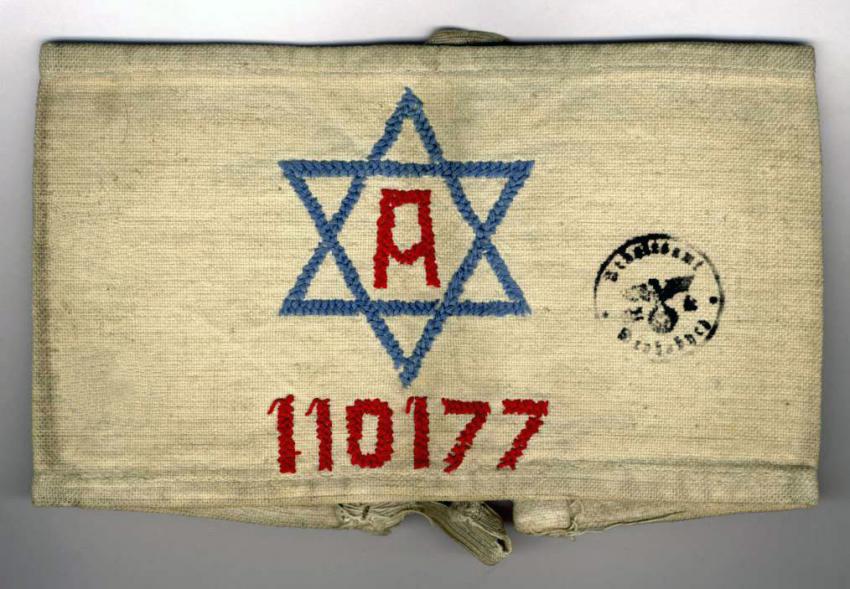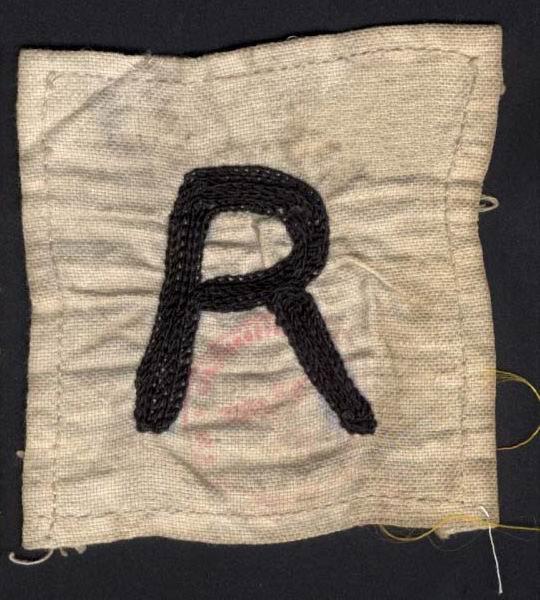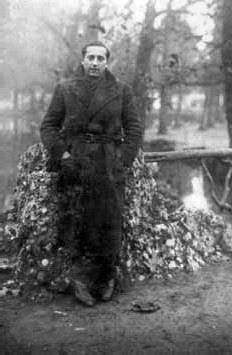Aryeh Mühlrad was born in 1921 in the city of Drohobycz, Poland. Aryeh, the only son of Aaron Wegman-Mühlrad and Genya née Berman, studied in a Polish secondary school, and completed his high-school education before the war broke out. His family was financially comfortable, and maintained a traditional lifestyle, speaking both Yiddish and Polish at home. Aryeh was active in the “Noar HaZioni” youth movement, and even participated in the movement’s national assembly, which took place in Mikulycin in 1938.
From September 1939, Drohobycz was under Soviet rule, which did not affect the Mühlrad family’s daily life, but when the Germans invaded in June 1941, Poles and Ukrainians instigated a 3-day pogrom against their Jewish neighbors, which the Germans did nothing to prevent. The Germans immediately instituted limitations on Jewish movement, ordered the wearing of an identifying mark, and confiscated property. Some two months later, the plan to liquidate the Jews was set into motion. Throughout 1942, Jews were caught and sent on transports, or killed on the spot. Meanwhile, Aryeh had managed to find a job working for a German officer by the name of Helmrich, who had set up an agricultural camp in a suburb of the city. At the end of August 1942, while Aryeh was at the camp, his mother was caught in an Aktion and deported to her death. Following this tragic event, Aryeh found work with a construction company in the city, so that he could be closer to his father, who worked in a German factory in the ghetto. Aryeh and his father wore armbands with the letter A (Arbeiter – worker), to identify them as protected workers. Later, Aryeh was promoted to the letter R (Rüstungsarbeiter – munitions worker), but as time passed, it became increasingly clear that the different armbands and tags were just another ruse in the Germans’ elaborate trail of deception.
In June 1943, with the liquidation of the ghetto, Aryeh, his father and cousin were deported to the Plaszow concentration camp, where they were sent to forced labor, and were cruelly tortured.
While in Plaszow, Aryeh did everything in his power to save his father, who had lost the will to live, but Aaron Wegman-Mühlrad was eventually taken to his death.
In August 1944, the surviving prisoners were transported to Mauthausen Concentration Camp, where a new cycle of forced labor, torture and humiliation began. The prisoners’ heads were shaved in a line with what was mockingly known as “Louse Avenue” (Lause Promenade). As Aryeh describes in his memoir “The Fateful Leap”: “With bodies devoid of coverings, save the aluminium bracelet on our wrist engraved with our personal number, we waited, scared to death, for the next decree...”
One of the German guards’ favorite forms of abuse was the “Death Game”, in which selected prisoners were made to carry a large rock on their backs until they collapsed and died. One of the only prisoners to survive this cruelty was Aryeh’s cousin.
A few weeks later, Aryeh was sent to the adjacent Gusen II camp to work in a Messerschmitt aircraft factory. Most of the prisoners were forced to dig underground tunnels or produce aircraft parts, but Aryeh had the good fortune to be assigned to the technical department. There, he found favor with the German in charge, who gave him extra bread rations that saved his life. This same German did not hesitate to send other prisoners to their deaths. In his book, Aryeh writes of the terrible conditions in the Gusen Camp: “The Germans did not think that their “worn out property”- the starving prisoners- required maintenance. They knew that there were always other Jewish forced laborers who could replace dead workers. Apart from the “soup”, they did not bother to provide us with more than one small slice of bread per day, and this tiny portion of food constituted our entire daily ration for weeks and months…” One of the few artifacts Aryeh managed to keep from this period was his most precious possession at that time: the spoon/knife he had in the camp.
Aryeh writes the following about the liberation:
“Suddenly it was as though a ray of light had pierced our lost souls…..We could already hear, albeit far away, the echoes of frequent allied bombardments…..May arrived, bringing with it fragments of hope and light after years of darkness and despair…..On May 5th, 1945, the first American soldiers appeared at the camp gates. For the first time after years of terror, we looked in wonder at these people who were neither criminals nor murderers. The sight of human beings who had no intention of killing or hurting us was strange and puzzling to us…..”
In his testimony in the Yad Vashem Archives, Aryeh adds:
“It was pouring with rain. I got to my feet and sobbed. It was not the recollection of all my terrible experiences that made me weep, but the realization that I had nowhere to go, that I was alone. The realization that I had nowhere to turn, that I had to live alone now, and rebuild my life. I wept a lot. It was the first time I had cried.”
In December 1945, Aryeh Mühlrad reached Magenta, Italy, with the help of a US soldier, and from there he immigrated to Eretz Israel on the ship “Hannah Szenes”, and joined the army. In 1949 he met his future wife, and together they built a new life in Israel.
Yad Vashem Artifacts Collection
Gift of Aryeh Mühlrad, Jerusalem, Israel
